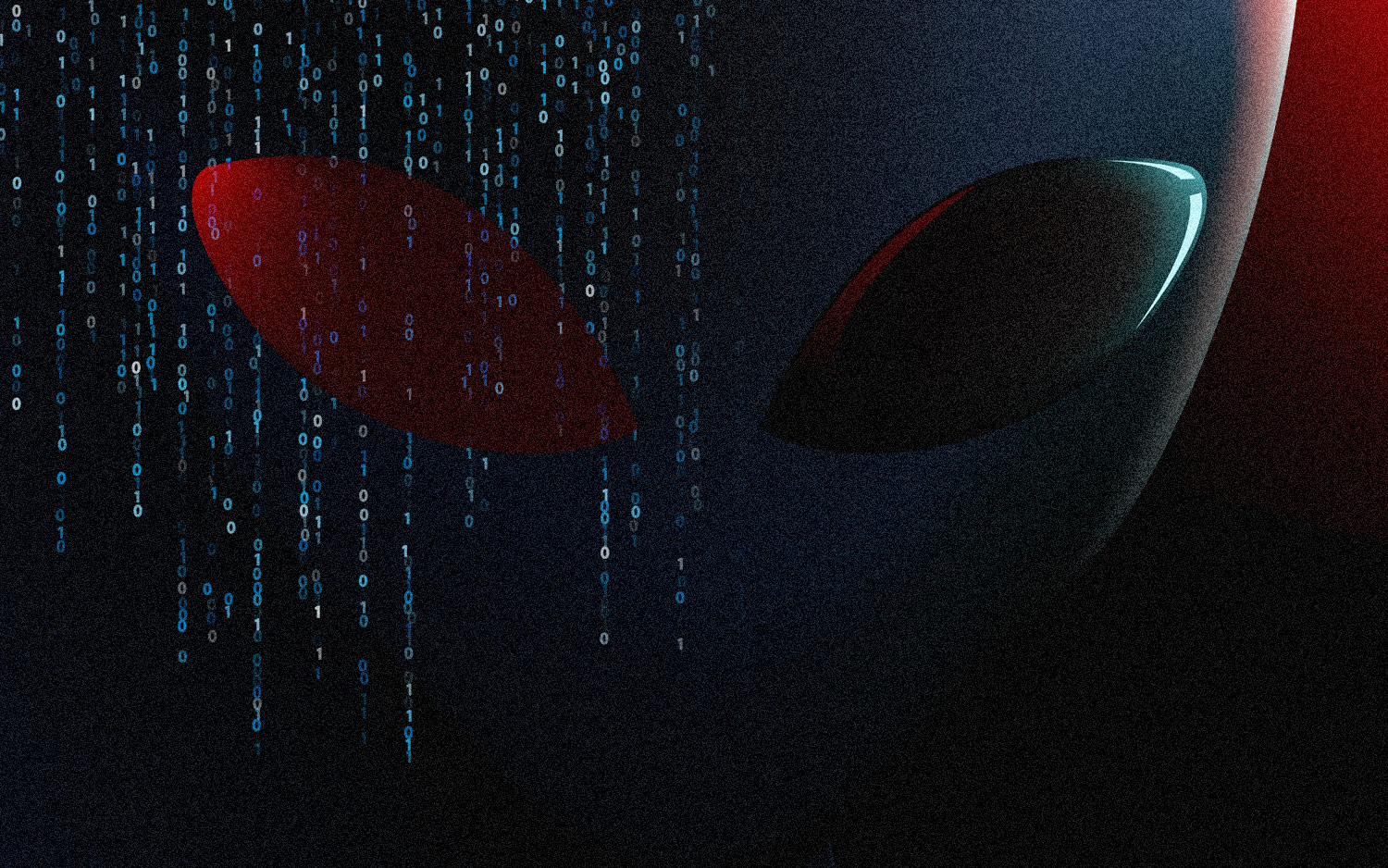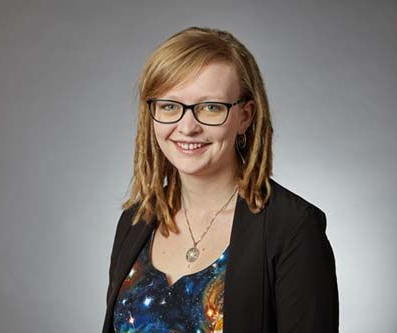How Theoretical Physicists Can Help Find E.T.

If and when humans discover extraterrestrial intelligence, should we expect to find it in the form of biological brains or artificially intelligent robots? Could it be something in between biological and technological or something else so out of this world that humans have yet to even fathom it?
When searching for E.T., scientists tend to look for signs of life with certain similarities to life on Earth. But abiding by that narrow definition of life could be the reason we still haven't found any aliens. Are we truly alone in the universe, or do we simply have no idea what we're looking for?
Scientists may have better luck finding aliens if they can come up with a definition of life that isn't so "Earth-centric," some researchers have said. In other words, scientists need to broaden the scope of the search to account for the possibility that extraterrestrial life may have nothing in common with life on Earth. Biologists and chemists may have a hard time wrapping their heads around a more universal definition of life, because everything they know about life is based on observations of Earth. Theoretical physicists, however, may have a better approach. [13 Ways to Hunt Intelligent Alien Life]
"When I think about looking for life, I'm not really thinking about looking for cells on a planet or molecules in an atmosphere. I think about looking for an entirely new sector of physics," Sara Walker, an astrobiologist and theoretical physicist at Arizona State University, said during a panel discussion at the World Science Festival in New York City. During the panel, she and a group of extraterrestrial experts pondered the possibilities of life beyond Earth and the very nature of life itself.
Do you think life exists on Mars?
Characterizing life using physics instead of biology or chemistry "seems like an unusual way of thinking about it," she said, "but we have some really amazing mathematical theories of the world — we have quantum mechanics and general relativity and these amazing revolutions in our understanding of the natural world — and we don't have any theories that explain the existence of life or the properties of life." But theoretical physicists could develop those, she added.
In current projects in the search for life on other worlds, biologists and chemists can tell astronomers to look for "biosignatures," or chemicals that may hint at the presence of life, like oxygen and methane. But the only biosignatures we know to look for are chemicals like those produced by organisms on Earth. What if aliens don't have the same biosignatures as Earthlings? Or what if they don't produce any biosignatures at all, because they aren't biological beings? In addition to those biosignatures, "technosignatures" like radio signals could also help us find intelligent aliens. But Walker suggests that theoretical physicists could discover new kinds signatures to look for.
Sign up for the Live Science daily newsletter now
Get the world’s most fascinating discoveries delivered straight to your inbox.
Redefining life
NASA's Astrobiology Institute currently defines life as "a self-sustaining chemical system capable of Darwinian evolution." But that definition holds true only for the kind of biological life we see on Earth, and it precludes what Walker and other scientists consider to be other forms of life, like artificial intelligence (AI).
"One of the problems that we often encounter is assuming that life is a chemical phenomenon," Walker said. "I think there's a confusion between the scale at which life emerges — which is probably chemical — and the definition of life, which is likely not related to chemistry and could apply to AI," she added. "We think of life as this chemical phenomenon and a cell as the fundamental unit for life … but that may be too narrow a view," Walker said. "If you do have this kind of expanded view and are really looking for more-fundamental basic processes of life, it really opens your horizons for things that you might look for," she said.
Fellow panelist Susan Schneider, a philosopher with the AI, Mind and Society Group at the University of Connecticut, also said that NASA's definition of life is too narrow. "What if AI is self-sustaining and has all sorts of intriguing properties, but the instance that we have is created by intelligent design — that is, we are the designers, we make the AI systems — and it doesn't evolve in a Darwinian fashion?" By NASA's definition, AI wouldn't qualify as a form of life. However, when searching for extraterrestrial intelligence, shouldn't researchers be willing and able to recognize the artificial version of life as well?

Why look for artificially intelligent ET?
Scientists and science-fiction authors have long entertained the idea that artificial intelligence created by humans will ultimately outlive us, while some go so far as to say that AI robots will someday be capable of taking over the world.
"It may be the case that our own planet will evolve sufficient technology that we either integrate with artificial systems, or we are superceded by artificial systems, and they become our progeny in the long-term future," Walker said. "But how likely that is on other planets is a subject of intense debate." If that process is typical for technologically advanced life and not just an anomaly taking place on Earth, then "it seems to be the case that if we encounter intelligent civilizations, they're more likely to be artificial that not," she said.
Whether a nuclear war, climate change or a huge asteroid renders our planet uninhabitable — or even if we manage to defy the odds and survive until our dying sun swells up and engulfs the Earth, frying everything on it to death in a few billion years — sooner or later, humans will no longer be able to survive on this planet, Lisa Kaltenegger, an astronomer at Cornell University in New York, said during the panel.
Our AI machines could someday have a better chance at survival than we do, because they don't have the burden of needing oxygen to breathe, water to drink or food to eat. So long as they have access to a renewable source of energy like solar power, AI robots could theoretically live forever. (Kaltenegger also argued that humans could theoretically live forever by successfully becoming an interstellar species, but I won't open that can of worms in this article.)
In the grand scheme of things — the expanse of our 13.8 billion-year-old universe — AI robots could be more common than biological aliens, assuming that other intelligent lifeforms tend to create and use AI in the same way that humans do and could do in the future, Walker said.
Planet Earth is about 4.5 billion years old. Our ancestors became an intelligent species only sometime between 60,000 and 100,000 years ago, and we just recently started developing AI technology, in the mid-20th century. Assuming that aliens who are at least as intelligent and technologically advanced as humans would develop their own AI, there may be more robotic AI progeny out there than their mortal, biological inventors, Walker said. And because alien civilizations could potentially be billions of years older than Earth, they could be so advanced that we can't even begin to imagine what they might look like, she said. They could be human-AI hybrids like cyborgs, or they might even be entirely artificial lifeforms created by a biological species that no longer exists.
New alien-hunting physics

Whether it's "little green men" on another planet or a colony of artificially intelligent robots on an interstellar spaceship, any system that processes information about its surroundings and uses that information to survive and thrive could qualify as a form of life, Walker told Space.com. "I think people want to make this distinction between biological and artificial, but in my mind, they're all information-processing systems, and they represent the same kind of physics," she said.
The kind of information in "living" systems that interests theoretical physicists like Walker concerns "the process whereby biological systems seem to acquire knowledge or information about their world and use that to do things that are really interesting and [that] make them very bizarre kinds of physical systems," Walker said. This approach breaks down life to such a fundamental level that it goes beyond what the life sciences can explain, she said. Physicists, however, can take a stab at the problem using mathematical models to describe such systems differently using network theory.
"When I think about looking for life, I think about what are the mathematical structures that we use to describe life on Earth that we should be thinking about" using to look for life on other planets, Walker said in the panel. "If you look at systems like the chemistry happening in your cells or the structure of the internet or the structure of Facebook [connections], there's a lot of regularities in the in the way those networks are structured, and a lot of that has to do with the way information is structuring those systems," Walker said.
While members of a social network like Facebook don't physically interact with one another, they do interact "through information technology or some kind of information exchange," she said. Those interactions can be mapped mathematically, and researchers can use statistics to learn more about how the individuals in that network function as a whole.
"The way we represent chemistry in your cells as a network is we say the molecules interact, so they would be the 'nodes' in the network. If they participate in a reaction together, then they have a line between them. You can represent an [alien] atmosphere that way, too," Walker said. "Some people have done some preliminary studies where they show [that] Earth's atmosphere looks more like the chemistry inside your cells than it looks like Mars' or Venus' atmosphere from this network perspective."
While she acknowledged that the findings from these preliminary studies have yet to concretely confirm that this is "a system-level property of atmospheres of inhabited planets," she said that this idea "gives us a better window into thinking about biological systems at a planetary scale.
"How can we actually use that as a biosignature that's not just dependent on the particular molecules participating in those networks, but actually the system-level organization?" Walker asked. This is where theoretical physicists have their work cut out for them.
Using network theory, theoretical physicists can broaden the criteria for the search for life so that any kind of organized and seemingly unnatural system would be recognized as a form of life, Walker said.
"I really think cities are alive, and I think computers are alive, and I think AI is alive," Walker said. "These are all examples of the same kind of information mattering to the world and re-emerging at different scales, and we don't really know how high up in the hierarchy that goes. We know that chemistry [was] organized into unique cellular organisms and that those [organisms were] organized into multicellular organisms. And then we had social systems, and then we had cities, and we have technological civilization that's now globally integrated, and now we're inventing artificial intelligence."
For alien civilizations that have been around much longer than humans, that hierarchy could advance to the point that very advanced kinds of life "could look entirely different than anything that we could anticipate right now," Walker said. If scientists are able to understand life at the most fundamental level, we'll have a better chance of recognizing the most bizarre forms of life, even if we have no idea what we're looking for.
Email Hanneke Weitering at hweitering@space.com or follow her @hannekescience. Follow us @Spacedotcom, Facebook and Google+. Original article on Space.com.

Hanneke Weitering is an editor at Liv Science's sister site Space.com with 10 years of experience in science journalism. She has previously written for Scholastic Classroom Magazines, MedPage Today and The Joint Institute for Computational Sciences at Oak Ridge National Laboratory. After studying physics at the University of Tennessee in her hometown of Knoxville, she earned her graduate degree in Science, Health and Environmental Reporting (SHERP) from New York University. Hanneke joined the Space.com team in 2016 as a staff writer and producer, covering topics including spaceflight and astronomy.










